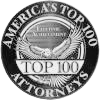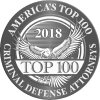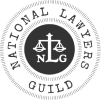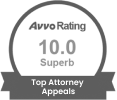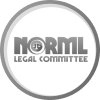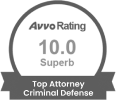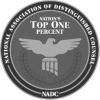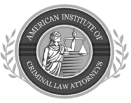
Young people sometimes make mistakes and find themselves in the wrong place at the wrong time. At The Zeiger Firm, we recognize the seriousness of juvenile crimes and work with our clients and their families to obtain a result that does not adversely impact a child’s potential as an adult when he or she turns eighteen years old.
One charge minors often face is underage drinking, which means possession of an alcoholic beverage by a person under the age of twenty-one. A conviction for underage drinking can have serious negative consequences on a youth’s life, including fines, jail time, driver’s license suspension and/or a permanent record. It can also prevent or limit the amount of financial aid the student will receive in college. For that reason, if you, a family member, or a friend has been arrested or charged with underage drinking, it is vitally important that an attorney represent that person as early in the process as possible.
With aggressive investigation and lawyering, the Philadelphia, Pennsylvania criminal defense attorneys at The Zeiger Firm have convinced authorities to drop and dismiss cases at their inception, before lives and families are forever changed or ruined. When cases do go forward, our criminal defense attorneys understand the various offenses that the prosecution may charge against a minor, and we aggressively and zealously defend against these charges. Our attorneys and staff form a team with our clients and their families to assure the best possible outcome.
When you need a Philadelphia, Pennsylvania criminal defense attorney to represent a person charged with underage drinking, contact The Zeiger Firm. We represent every client zealously in order to obtain the best results possible in each case. To arrange a consultation, please give us a call at 215-546-0340 or fill out our online contact form.
Juvenile Charges in Pennsylvania
Many people who are arrested for underage drinking are under the age of 18. High school students and other children accused of underage drinking may have a case in juvenile court instead of traditional criminal court. The juvenile system handles cases against minors from age ten to 18 and the legal process differs significantly from adult criminal court. Because some of these differences can benefit your child, it is essential to have help from a criminal defense lawyer who has experience in the juvenile court system.
Juvenile offenses are considered delinquent acts instead of crimes in Pennsylvania. Likewise, juveniles are adjudicated delinquent instead of convicted. However, juveniles may have fewer rights during the process, such as having no right to a jury trial. On the other hand, juveniles still have the opportunity to defend against the charges against them. The right defense attorney will be able to identify any possible way to present defenses in each case and limit the effects on your child’s future.
The following are some ways that an attorney can work for the best possible outcome in a juvenile underage drinking case:
Obtain a consent decree – In some cases, a juvenile may be offered an option called a consent decree. In this situation, the prosecutor suspends the proceedings against the juvenile and instead gives them a chance to complete a period of supervision, which is similar to an accelerated rehabilitative disposition (ARD) in adult court. The consent decree will contain the details of the agreement, including the period of time and conditions of supervision that the juvenile must meet. If the juvenile completes the supervision period, the case concludes without an adjudication. On the other hand, if the juvenile violates any terms of the supervision, the charges can be reinstated and the case can proceed. A successful consent decree can often prevent any trace of the underage drinking allegations on your child’s record, so it will not affect his or her future.
Deferred adjudication – If a juvenile pleads guilty or is found guilty of underage drinking, the judge can defer the actual adjudication for a period of time. This is similar to a suspended sentence in adult criminal court. While the judgment is suspended, the juvenile will have to complete a period of supervision with conditions set out by the judge. If the juvenile completes the period of supervision and complies with all requirements, the case can be dismissed without an adjudication on the juvenile’s record.
If the judge offers neither a consent decree nor deferred adjudication, an attorney can still present defenses to try to have the case dismissed, or fight for a lesser charge, or reduced or deferred sentence. Upon an adjudication of delinquency, the judge will examine many factors to set forth a plan. Factors include the accountability of the minor, the supervision needed for the minor, and whether the minor may need any treatment or rehabilitation. In some cases, the judge may feel the need to remove the child from their home for placement in a foster home or a juvenile facility. A juvenile defense lawyer can fight to keep your child in your home whenever possible, as well as explore all options for the best possible placement of the child.
If a juvenile is adjudicated delinquent, points can go on their record. These points can count against them if they are later charged with an adult offense; may not fall off their record until they are 27 years old; or in some instances may stay on their record permanently. Having a juvenile delinquency can affect a minor’s ability for acceptance into certain educational programs, eligibility for financial aid, or even qualifying for certain jobs. If your child is facing allegations of underage drinking in juvenile court, it is critical that they have the proper legal representation. The Zeiger Firm has extensive experience representing juveniles, so please contact us as soon as possible to learn how we can help your child.
Underage Drinking Charges in Criminal Court
Not every case of underage drinking is handled in juvenile court. First, individuals from age 18 to 20 can be suspected of underage drinking, but they are too old to be charged as minors. In addition, prosecutors may choose to charge juveniles under age 18 as adults in certain circumstances. In any event, you or your child may face charges of underage drinking in criminal court and you need a skilled criminal defense lawyer on your side from the very beginning.
Underage drinking is a summary offense under Pennsylvania law. Because this offense is not a misdemeanor or a felony charge, many people fail to take their case as seriously as they should. It is important to understand that even a summary offense on your record can have a negative impact on different aspects of your life.
The following are the maximum potential penalties for a conviction of underage drinking:
- 90 days in jail
- $500 fine and court costs
- Driver’s license suspension for 90 days
These penalties are possible for even a first offense of underage drinking. For a second offense, the maximum fine is increased to $1,000 and the driver’s license suspension may last one year. For subsequent offenses, the license may be suspended for two years.
The possible sentence for underage drinking is surprisingly serious, especially since a driver’s license suspension can affect your ability to get to and from work or school. Too many people have lost their jobs because they cannot get to work regularly or because their jobs required them to have a valid driver’s license. For example, if you work as a delivery driver to help save money or pay for college, you will not be able to continue at that job without a valid license.
For a first underage drinking conviction, a defense attorney may be able to obtain an occupational limited license (OLL) for you. You must apply to the Pennsylvania Department of Transportation (PennDOT) explaining exactly why you need a limited license and pay a required fee. If you obtain an OLL, you may get permission to drive to school, work, or treatment. This option is only available for first-time offenders, however. If you have a previous underage drinking conviction on your record, you will be ineligible for a limited license. This is a serious matter, as license suspensions can be for one or more years in this situation. Often, second or third-time underage drinking offenders wish they had the proper defense representation for their first case to avoid a conviction on their record whenever possible.
A criminal defense attorney can present different defenses against your underage drinking charges, depending on the circumstances of the allegations against you. The following are only some ways that we argue to have underage drinking cases dismissed:
The traffic stop violated your 4th Amendment rights – To pull you over, a police officer must have reasonable suspicion to believe that you had violated the law in some way. For example, if you ran a red light, an officer can legally pull you over, but if no such unlawful act occurred, a random traffic stop violates your right against unreasonable search and seizure.
The arrest violated your 4th Amendment rights – To arrest you, the officer must have probable cause to believe that you had been drinking. Probable cause may be obtained by smelling alcohol on your breath, seeing open liquor containers in your possession, observing signs of intoxication, poor performance of field sobriety tests, or a breath or blood test that shows alcohol in your system. Without probable cause, an arrest violates your constitutional rights.
The officer made other mistakes – If a prosecutor is relying on a breath or blood test to prove you had been drinking, a defense attorney may be able to argue that the test was not administered correctly, or that errors were made in processing the test results. If an officer failed to read you your Miranda rights and you then confessed to drinking while under arrest without knowing your rights to remain silent and call an attorney, a defense lawyer may argue to have your confession thrown out of the case.
In some cases, presenting a strong defense can result in the dismissal of your case and no mark on your criminal record.
Even if the court will not dismiss your case, an experienced criminal defense lawyer can negotiate for the best possible outcome in your case. Defense attorneys can negotiate with prosecutors for a lesser charge or sentence if you agree to plead guilty to the charges. Plea agreements can often avoid any jail time and instead sentence you to probation. Your attorney can argue that you do not need treatment, rehabilitation, or even supervised probation due to the nature of your charges. A plea agreement can often improve the outcome of your case and you need the right defense attorney to negotiate one on your behalf.
Defense strategies can differ significantly from case to case depending on the evidence the prosecutor plans to present against you. The legal team at The Zeiger Firm knows how to examine the allegations against you or your child to best protect your rights and defend against underage drinking charges.
Immunity Exception to Underage Drinking Offenses
There is one particular situation in which an underage individual should not be prosecuted or convicted of underage drinking under Pennsylvania law. The law understands that at times, people under the age of 21 may be drinking alcohol together and one person may be in need of medical attention. If a person called 911, the police, or campus security, because they believed another person needed immediate medical help, they can be immune from underage drinking charges. The following must be true for the exception to apply:
- The underage intoxicated person had a reasonable belief that someone else needed immediate medical attention or else they may suffer serious injury or death.
- The underage intoxicated person called 911, the police, or security in good faith trying to help the other person.
- The only reason the authorities knew the underage person had been drinking was that they called for help.
This exception exists because many underage people choose to experiment with alcohol in dangerous ways. Young people may not realize their limits or may drink more than they should out of curiosity or peer pressure. If someone gets in medical trouble, others should not be discouraged from seeking life-saving help out of fear they will be arrested and charged with underage drinking.
Our experienced Philadelphia defense lawyers know that this very important exception exists and understands the relevant circumstances that may support its application. We also know that sometimes, people get charged even if they were simply trying to help someone else—and we can fight to have your case dismissed in that situation.
Related Charges
Young people who are drinking can make poor decisions and get into other forms of trouble, as well. When they are arrested for underage drinking, officers may also allege they committed other crimes and a case may involve additional types of charges. The following are only a few common charges that may accompany underage drinking:
Driving under the influence (DUI)
Police often discover that an underage person has been drinking when they pull them over in the car. This then can result in a charge of driving under the influence (DUI). Pennsylvania has a zero-tolerance policy for underage drinking and driving. While the legal limit for adults age 21 and over is 0.08 percent blood alcohol content (BAC), the limit for underage individuals is 0.02. Even a couple sips of alcohol can result in a 0.02 BAC, meaning that if a minor has been drinking at all, they are likely to be arrested for DUI.
DUI charges are very serious for people of any age. They can result in extended license suspensions, thousands of dollars in fines, and even time in jail. Anyone facing DUI charges should have an attorney handling their case who understands how to handle every aspect of a DUI and license suspension case.
Possession of a controlled substance
When kids are partying with alcohol, there is a chance they also are using marijuana or other unlawful drugs. If police discover any drugs on a person or during a traffic stop, the person can face charges of possession of a controlled substance. Even “simple” possession charges are not so simple. While the penalties may vary depending on the type and amount of drugs in question, the maximum penalties for possession of a controlled substance include a $5,000 fine and up to one year in jail. The penalties can significantly increase for larger amounts of drugs, if the authorities believe you intended to distribute the drugs, or if you have prior drug-related convictions.
There are different ways to defend against drug possession charges. For example, if the drugs were found in violation of your 4th Amendment rights, your attorney can argue that the drug evidence should be suppressed, which often leads to a dismissal of your drug possession charges. In addition, if the drugs were found in a car with multiple people or in a house where numerous people were partying, your attorney can argue that you did not actually or constructively possess the drugs. Drug convictions can significantly affect your future in many ways, so it is important to have the strongest possible defense in this situation.
Assault
When people have been drinking, arguments may escalate and may become physical. If an underage person is drunk and fighting, they may be arrested for both underage drinking and assault. Assault can be charged as “simple” assault or “aggravated” assault, depending on the circumstances. Assault charges are more serious if the prosecutor alleges a defendant caused injury to someone else, or if the assault was against a certain person, such as a police officer. You can also face charges for being a physical menace, which involves making physical acts that put someone else in fear of bodily injury.
Simple assault is a second-degree misdemeanor and can mean two years in prison and a $5,000 fine. However, if two people mutually entered into a fight, which is common in drunken situations, the charge should be reduced to a third-degree misdemeanor and the maximum consequences should be one year in jail and a $2,500 fine. If someone else started the fight with you, your attorney can claim you were acting in self-defense. Self-defense is a complex legal defense and you should have a skilled attorney defending against your assault charges.
Public intoxication
Pennsylvania law criminalizes the offense of public intoxication, though it does not apply to any situation in which a person is drunk in a public place. Instead, a prosecutor must prove that a person is:
- Under the influence of alcohol
- Appearing in public
- Posing a danger or inconvenience to themselves, others, or property
For example, if a person is hanging out in a park and is drunk, but not talking to anyone or posing a threat, the public intoxication charge should not apply.
Minor in possession
If a minor is suspected of being intoxicated and the police find alcoholic beverages, they can face the charge of a minor in possession of alcohol. This charge often goes hand-in-hand with underage drinking and the penalties are similar. Minors can also face an additional fine of $500 if they used a fake ID or otherwise misrepresented their age to try to purchase alcohol.
You should have a criminal defense lawyer who knows how to handle all of the charges in your case, no matter how minor or serious they seem. If you are convicted of multiple charges, an attorney can fight to have any probation or jail sentences run concurrently rather than consecutively. Having multiple convictions on your record before you are even 21 years old can affect the rest of your life. You need a lawyer who will fight against all charges to avoid convictions whenever possible.
Many minors who are caught drinking are looking forward to college, trade school, professional programs, and successful careers. While an underage drinking may not seem like a big deal, you would be surprised how a single conviction can derail your professional future. The consequences of an underage drinking case can go well beyond fines, probation, or even jail time. High school students may put their college applications in jeopardy and college students may face disciplinary action from their schools. You should never risk facing unnecessary consequences for underage drinking. Your first call should be to a law firm that knows how to mount a proper defense against any applicable charges.
Consult With Our Philadelphia Criminal Defense Law Firm Today
Minors may find many different ways to obtain and drink alcohol and it may seem like a “normal” thing to do among certain groups of friends. Many young people may not recognize the possible consequences of their actions until they find themselves in juvenile or criminal court proceedings. Unfortunately, neither immaturity nor ignorance of the law is enough to defend against criminal violations. These matters should always be taken extremely seriously to limit the impact on your child’s future.
Having any type of criminal conviction or delinquency on your record can affect your life in more ways than you may consider. You do not want to have your professional future jeopardized because you made a mistake. Instead, get the legal assistance you need to protect your rights and achieve the most positive results possible.
At The Zeiger Firm, we represent defendants of all ages facing all types of juvenile offenses, summary offenses, misdemeanors, or felonies. We have the skill and resources to mount an aggressive defense for each of our clients. Whether your case involves a plea bargain or representation at trial, we are committed to providing the highest quality of legal defense services.
If you would like additional information about our services or to discuss your specific case, please do not hesitate to call our office at 215-546-0340 or contact us online.

